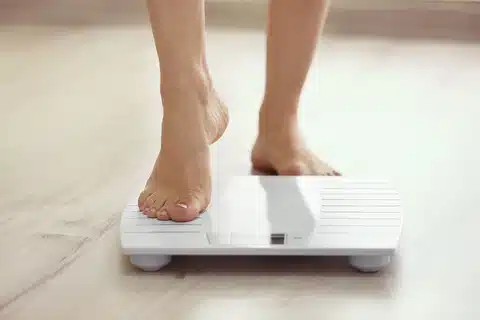1 in 3 new mothers develop urinary incontinence. However, due to the taboo that still remains around incontinence, the condition remains frequently overlooked part of maternal morbidity. Further, many incontinent women feel ashamed in their body. Around 7 million women around the world have some form or degree of urinary incontinence.
Many are also too embarrassed to seek help, leaving the issue as a hidden societal and medical concern. Finally, more than a third of women who experience urinary or faecal incontinence are too ashamed to tell their partners. But it is important that women no longer suffer in silence.

Why Does Postnatal Incontinence Develop?
Pregnancy dramatically changes the human body. As a result, many women have lingering issues which persist long after childbirth. The pelvic floor muscles, which support the bladder, bowel and uterus in women can be drastically weakened due to the weight of a baby during pregnancy and giving birth.
Further as the uterus shrinks in size after delivery it rests directly on the bladder. As a result, it is more difficult for the pelvic floor to function. Women who have had a spinal block or epidural can also experience incontinence due to the nerves around and inside the bladder feeling numb.
As a result, some women find they have little or no control over their bladder. In fact, it can be difficult to even tell when they need to use the bathroom.

Specific Risk Factors for Postpartum Incontinence
Research has uncovered a number of specific risk factors which cause postnatal incontinence. These include:
- Each subsequent pregnancy can make long-term incontinence problems more likely
- The length of labour, and whether you require forceps, make the development of incontinence more likely
- Age is often associated with postnatal incontinence, specifically with women older than 35
- Weight is also a factor, with obese women are more likely to develop incontinence
- Delivery by c-section can lower the risk of more severe incontinence
- Smoking can also impact the development of incontinence
- Heavier babies are also more likely to cause they

How to Regain Bladder Control
There are a number of ways that you can improve or regain bladder control after pregnancy.
Exercise Pelvic Floor Muscles
Exercising the pelvic floor muscles can help regain bladder control. Pelvic floor exercise can help to gradually strengthen your pelvic floor. You can start exercises as soon as you feel comfortable after having a baby.
It is important to remember that you may not be able to feel your pelvic floor at first. This is due to the fact that the nerves in that area have been stretched during delivery. So don’t worry if you can’t feel anything happening at first, you are still doing yourself and your body some good.

Monitor Your Weight
Researchers estimate that each increase in BMI is associated with an incontinence risk of 50%. Further, there is evidence to suggest that those who have been overweight for longer, or since early adulthood, more than double their risk of incontinence. With more weight gain, more stress is placed on the pelvic floor. Further, there are strong correlations between intra-abdominal pressure, intravesical pressure and BMI.
As a result, this suggests that obesity may cause a chronic state of increased pressure. A higher BMI also causes mechanical stress on the urogenital tissues. While weight gain after childbirth is inevitable, keeping weight gain moderate can help control incontinence after birth.
Use the Right Products
It is important that you don’t just settle for using sanitary pads to control urinary incontinence. Although many people feel embarrassed about finding incontinence products, they are far more efficient. They can also prevent you from having uncomfortable accidents. Further there are many online stores now that cater to incontinence products, allowing discreet purchasing. Explore Holistic Incontinence today to find the right products for you.

Improving Care for Postnatal Incontinence
Thankfully, there are many ways health professionals can help improve incontinence after childbirth. This includes symptom screening and discussions of healthy bladder habits. Further, learning about muscle techniques can help women prevent symptoms from worsening. Many women do not understand why they have developed incontinence. As a result, education on pelvic floor injuries that can occur during childbirth are important.
Further, some of the risks for postpartum incontinence are treatable and worth investigating. It is important to always talk to your doctor and discuss any concerns you have. Suffering in silence will only prolong your symptoms and any mental health or emotional issues. Talking with your doctor might alleviate many of your fears, including the length of your urinary incontinence and what you can do to improve your symptoms.
For those who require ongoing support, Holistic Incontinence offers a wide range of products to help you manage your symptoms and get one with enjoying life. Explore the range today!
